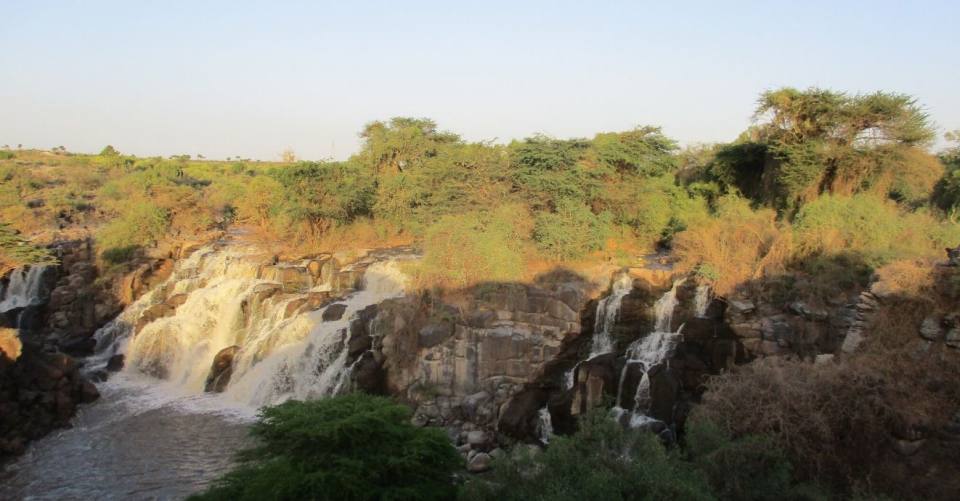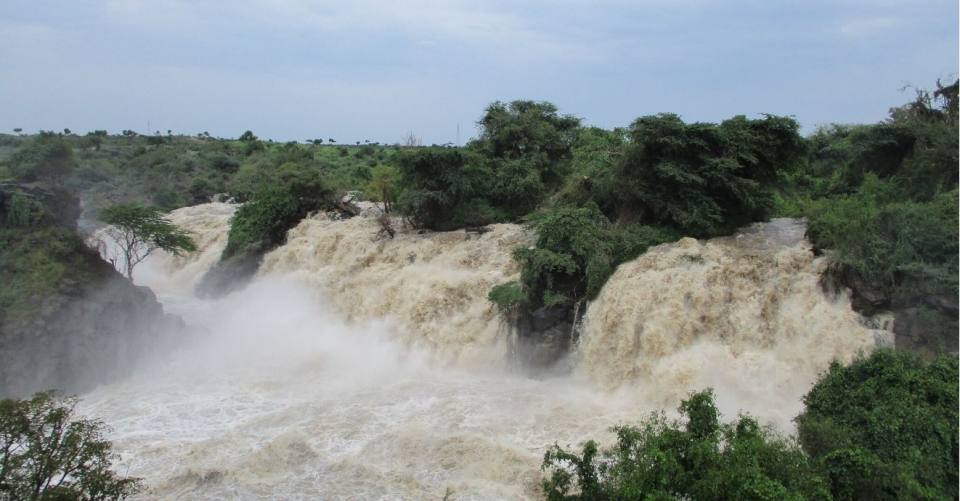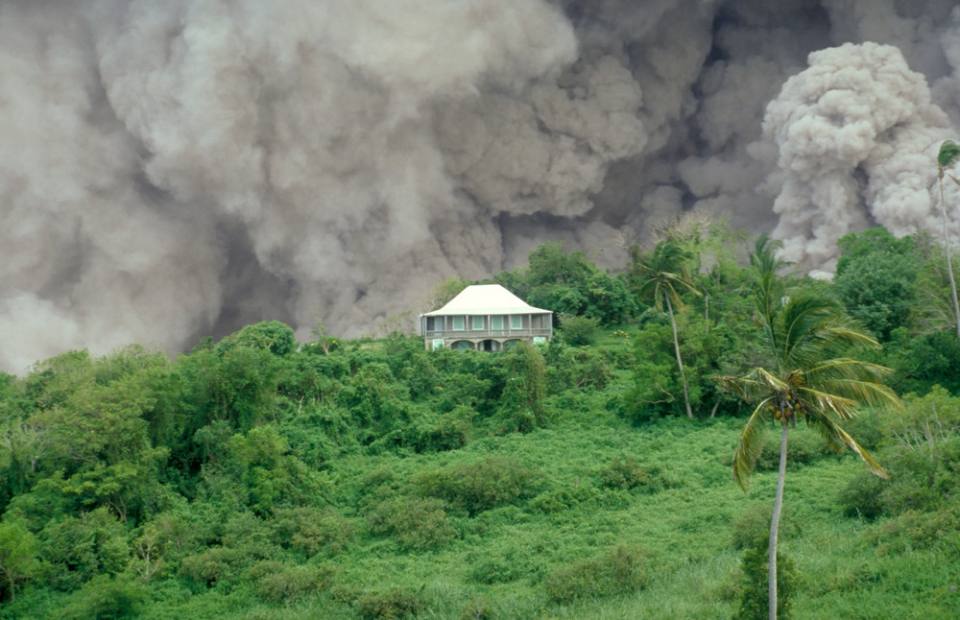The Ethiopian Rift Valley is a semi-arid region of East Africa where scarcity of water supply poses a significant problem for local populations. Modest yields of groundwater occur in the volcanic and volcaniclastic aquifers of the region but its quality is commonly impaired, particularly by detrimental concentrations of fluoride. A further problem, for both Metahara and Awash towns, is the rising level and expansion of the neighbouring brackish, high-fluoride Lake Besaka.
This new project aims to understand the water quality of the Awash River, Lake Besaka, geothermal springs and local groundwater to provide an overview of water resources and assess consequences for drinking water and health.

Figure 1a: Awash River at the Awash Falls during the dry season (March 2019). BGS © UKRI.

Figure 1b: Awash River at the Awash Falls during the rainy season (September 2019). BGS © UKRI.
One potential mitigation measure for the rising level is to allow controlled release of lake water to the river during periods of high discharge (rainfall) when the brackish lake water can be diluted more effectively (Figure 1a and 1b). This would have potential consequences for river salinity and fluoride concentrations, neither of which has been investigated in detail.
This work is being done in collaboration with our partners at Addis Ababa University and in consultation with the Ethiopian Ministry of Water, Irrigation and Electricity.
You may also be interested in

Global geological risk
Our research focuses on characterising complex, multi-hazard processes with the aim of improving resilience of communities to hazards.


